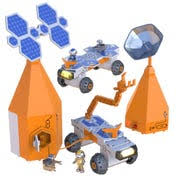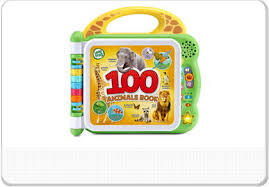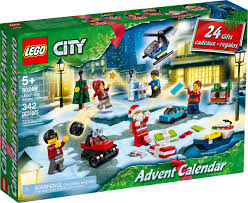|
|
Karito Kids Provide Health and Homes for Children KidsGive’s Charitable Efforts Thrive With Product’s Popularity
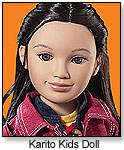 KidsGive makes dolls and books that represent girls and cultures around the world. It’s also a children’s charity and the result of a vision shared by Co-founders Laura Rangel, president, and her friend Lisa Steen Proctor, COO. Laura was an executive with a marketing firm, working primarily in consumer packaged goods and branding, and Lisa was working as an attorney when they quit their jobs to start KidsGive. Laura recently spoke to TDmonthly Magazine about the inspiration for KidsGive and its success. KidsGive makes dolls and books that represent girls and cultures around the world. It’s also a children’s charity and the result of a vision shared by Co-founders Laura Rangel, president, and her friend Lisa Steen Proctor, COO. Laura was an executive with a marketing firm, working primarily in consumer packaged goods and branding, and Lisa was working as an attorney when they quit their jobs to start KidsGive. Laura recently spoke to TDmonthly Magazine about the inspiration for KidsGive and its success.I wanted to use the skill set I had developed in the corporate environment to create a socially responsible business that could make a difference to the world. Central to the concept was observing that children are naturally compassionate and altruistic. As a parent and as a gift-giver, I wanted to produce something that, when purchased, was doing a great thing for the child and also for others around the world. FIRST LAUNCH MAKES BIG IMPACT We began with $10,000 each and then started our search for talented experts in the disciplines needed to make it a reality — sculptors, authors, illustrators, designers. (Read more.) We came up with the concept and started writing the business model in 2006, and by February 2007 presented a prototype — the Karito Kids World Collection — at our first Toy Fair. We were able to secure such high-profile customers as FAO Schwarz, Disney Epcot Center and Neiman Marcus. We found our manufacturer through Web research and by talking to industry experts. Also, Lisa and I visited six manufacturers in China, and made our selection based on experience, quality and safety. Our product is not just dolls and books, but is based on a philosophy. It teaches children about the importance of social responsibility and charitable giving. DOLLS GIVE HEALTH, SHELTER AND EDUCATION 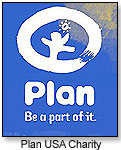 Three percent of the retail price is donated to a nonprofit children’s charity plan. The best part is that the customer gets to select the project they want to fund by registering the code found with the project on the KaritoKids.com website. Once the child registers, she can explore, play games and choose ways to help kids through schools, homes, foods or health. Three percent of the retail price is donated to a nonprofit children’s charity plan. The best part is that the customer gets to select the project they want to fund by registering the code found with the project on the KaritoKids.com website. Once the child registers, she can explore, play games and choose ways to help kids through schools, homes, foods or health.From July 2007 to June 2008, the following were purchased: • More than 19,000 mosquito nets, helping children in more than 357 remote villages in Kenya (36 percent of children directed funds to health projects) • 5,200 chickens and the eggs they produced for food (15 percent of children directed funds to food projects) • More than 15 mason homes were built or secured in Honduras under the Homes project (22 percent of children directed funds to homes) • 2,200 textbooks for 976 children in Mali (15 percent of children directed funds to aid schools) LEARNING THE BIZ 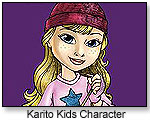 Lisa and I were both industry outsiders. All the things that occur when you don’t know what to expect occurred on what felt like an hourly basis. But you have to get through them and excel at them. You’re not just competing with mom-and-pop businesses but with industry behemoths. Lisa and I were both industry outsiders. All the things that occur when you don’t know what to expect occurred on what felt like an hourly basis. But you have to get through them and excel at them. You’re not just competing with mom-and-pop businesses but with industry behemoths.The thing I didn’t know that became a valuable lesson was how to communicate our philosophy and the value of our brand and product in the specialty retail arena when there’s limited shelf space and resources. That was probably our biggest challenge and our biggest opportunity for increased sales to the consumer. At the end of the day, it’s about recognizing that the world is changing. We need to not think like adults but like kids of the new generation. Doing the same things over and over won’t generate sales. Try something different demographically, and get into their mindset.  Writer's Bio: Elizabeth Greenspan edits and writes for trade and technical publications. She has interviewed and collaborated with some of the top practitioners in their fields. She lives in Philadelphia and travels extensively for her work. Read more articles by this author Writer's Bio: Elizabeth Greenspan edits and writes for trade and technical publications. She has interviewed and collaborated with some of the top practitioners in their fields. She lives in Philadelphia and travels extensively for her work. Read more articles by this author |
| |||||||||||||||||||||||||||||||||
Disclaimer Privacy Policy Career Opportunities
Use of this site constitutes acceptance of our Terms of Use.
© Copyright 2025 PlayZak®, a division of ToyDirectory.com®, Inc.

